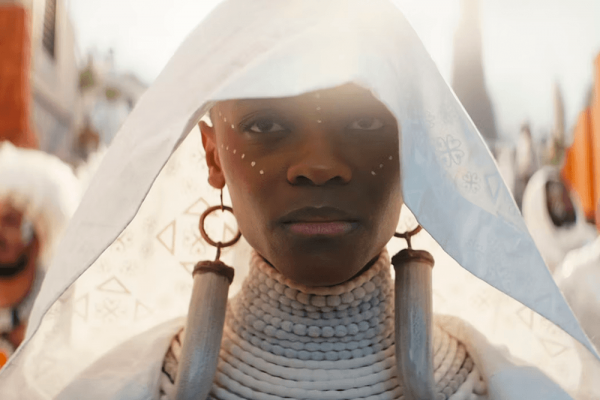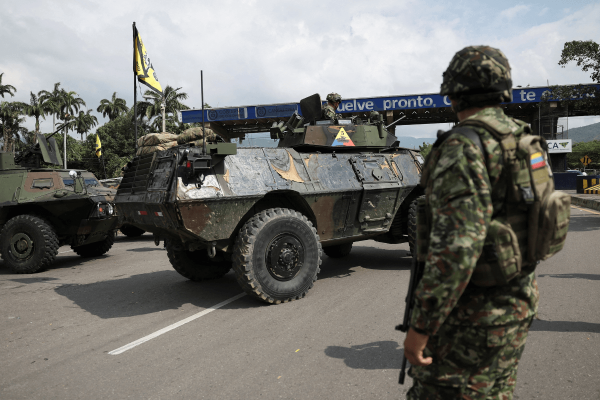Given writer-director Ryan Coogler’s herculean task of making a Black Panther sequel without the titular lead, the fact that Black Panther: Wakanda Forever falls well short of the paradigm-shifting standard set by its predecessor isn’t surprising.
But it’s not the absence of Chadwick Boseman — whose death in 2020 is paralleled by T’Challa’s fate in the film — that makes the film fall short. Wakanda Forever suffers from the same ailment as much of the larger Marvel Cinematic Universe: It tries to offer individualistic answers to systemic evils. Unfortunately, there are evils in the world we can’t simply punch to death.
There was a time long ago when the MCU thought it might not have to grapple with death. These are, after all, films based on comic books in which characters return so often from the dead that it’s a running joke. Even in the MCU characters like Loki have died, only to later return to the screen. Though no actor can play any character forever, recasting the characters wouldn’t be so different from a new writer and artist taking over a character in the comics. But by the time Robert Downey Jr. snapped his fingers and declared, “I am Iron Man,”" in Avengers: Endgame, it had become clear that, in the MCU, the actors are the characters.
So despite a compelling #RecastTchalla campaign (that argued that T’Challa should be bigger than any one actor who plays him), when Boseman died, so did the MCU’s Black Panther. His death looms large over the first act of Wakanda Forever, overshadowing the geopolitical story unfolding: Because Wakanda won’t share vibranium with the rest of the world, the rest of the world (read: the U.S. and Europe, aka the colonizers) decides to try everything from stealing from Wakanda to finding another source.
And another source they find, in the bedrock of another secret civilization — the Empire of Talokan. Talokan is a civilization peopled by the descendants of Mayans who fled Spanish conquistadors by imbibing a similar herb to the one that bestows the powers of the Black Panther. Both nations are built — literally — on vibranium-filled meteorites.
All this exposition establishes a provocative contrast: two civilizations who escaped European colonialism, one by hiding and one by fleeing. Both have power and resources that make them more than a match for those colonizing powers. And now neither can remain undetected.
This is a natural extension of how Black Panther engaged the ongoing reality of colonialism. T’Challa wanted to keep Wakanda hidden from the world, while Killmonger wanted Wakanda to lead a global revolution of the colonized. By the end, T’Challa agreed with Killmonger — Wakanda has an obligation to the oppressed people of the globe. But he refused Killmonger’s path of global domination. (Though he does kill him, which is an article for another time.)
Wakanda Forever ’s vengeful avatar is Namor (a charismatic Tenoch Huerta). Namor is a Mayan mutant who witnessed the violence of the conquistadors firsthand (yes, he is very old). He wields his charisma both to persuade and intimidate Wakanda’s leaders, Queen Ramonda (Angela Bassett, as good as she’s ever been) and Princess Shuri (Letitia Wright, who isn’t quite up to the incessant brooding that is her character’s singular note).
We’re asked to imagine two immensely powerful nations who know well the evils of colonialism and who can no longer hide from them. We’re invited to wonder how they might respond to colonial powers who, far from repenting of their sins, have honed them to perfection. But instead of exploring those ideas, the movie yanks us back to Shuri’s inability to grieve her brother’s death. This, rather than the much more interesting questions about colonialism, drives Wakanda Forever.
In the synoptic gospels, Jesus cleansed the temple toward the end of his ministry. Grief and anger fueled his actions — a nonviolent protest against a compromised religious institution. Later in that same week, he wept over Jerusalem and its leaders (Matthew 23:37-28).
“O Jerusalem, Jerusalem, the city that kills the prophets and stones those who are sent to it! How often would I have gathered your children together as a hen gathers her brood under her wings, and you were not willing! See, your house is left to you desolate,” Jesus cries.
Jesus doesn’t weep for the individual sins of citizens past and present; he weeps for the whole project of God’s people. Rather than remain faithful, they have at every turn killed those who call them to faithfulness while siding with false gods and the nations who serve them. Jesus’ anger and grief illuminates what Wakanda Forever missed: It’s possible to be very, very angry — to the point of grief — at the ongoing reality of injustice and oppression and be spurred to engage that unjust world with clear eyes.
In Wakanda Forever, grief is either an obstacle or a poison. Shuri cannot take her rightful place in Wakandan society because she cannot grieve T’Challa. Namor cannot imagine a world where the descendants of the colonized can live in harmony with those of the colonizers. Such a conflict can only end in one group acquiescing to the other or both parties fighting to the death.
We overlook these moments in Jesus’ final week, but they are essential to understanding his embrace of the cross. Grief and anger do not, by definition, hamper our ability to stand against evil. They may, in fact, hone our abilities and clarify our stakes. Jesus did not die only for our individual sins; Jesus died to defeat sin and death. Jesus died to swallow up Evil itself. The cross is God’s answer to sin both individual and systemic.
But the individual descendants are not the real problem — as displayed in Agent Ross (Martin Freeman) who returns as the token “good colonizer.” The deeper obstacle to peace is the unjust systems that continue to work in the present moment to rob nations like Wakanda and Talokan of their resources for the benefit of U.S. and European empires.
Wakanda Forever does not manage to juggle every story it tosses at us (don’t even get me started on Riri Williams, a character who deserves a far better introduction than this). Namor is terrific, while Talokan doesn’t get enough screentime, and the Mayan-futurist kingdom is an exciting addition to the MCU. Every character, new and old, gets something to do. Even when story beats miss (there’s an unfortunate new costume that looks way too much like Sonic the Hedgehog), it’s good to spend time with these characters again.
Maybe the specter of Boseman’s death loomed too large to ignore for those who knew him best. Maybe it’s naïve to hope for more from a studio who often functions as propaganda for the Pentagon. Whatever the reason, one thing the movie got right is that the colonizers aren’t going anywhere. A little righteous anger mixed with some prophetic lament would go a long way toward dismantling the engines of oppression we’ve built.
Got something to say about what you're reading? We value your feedback!







